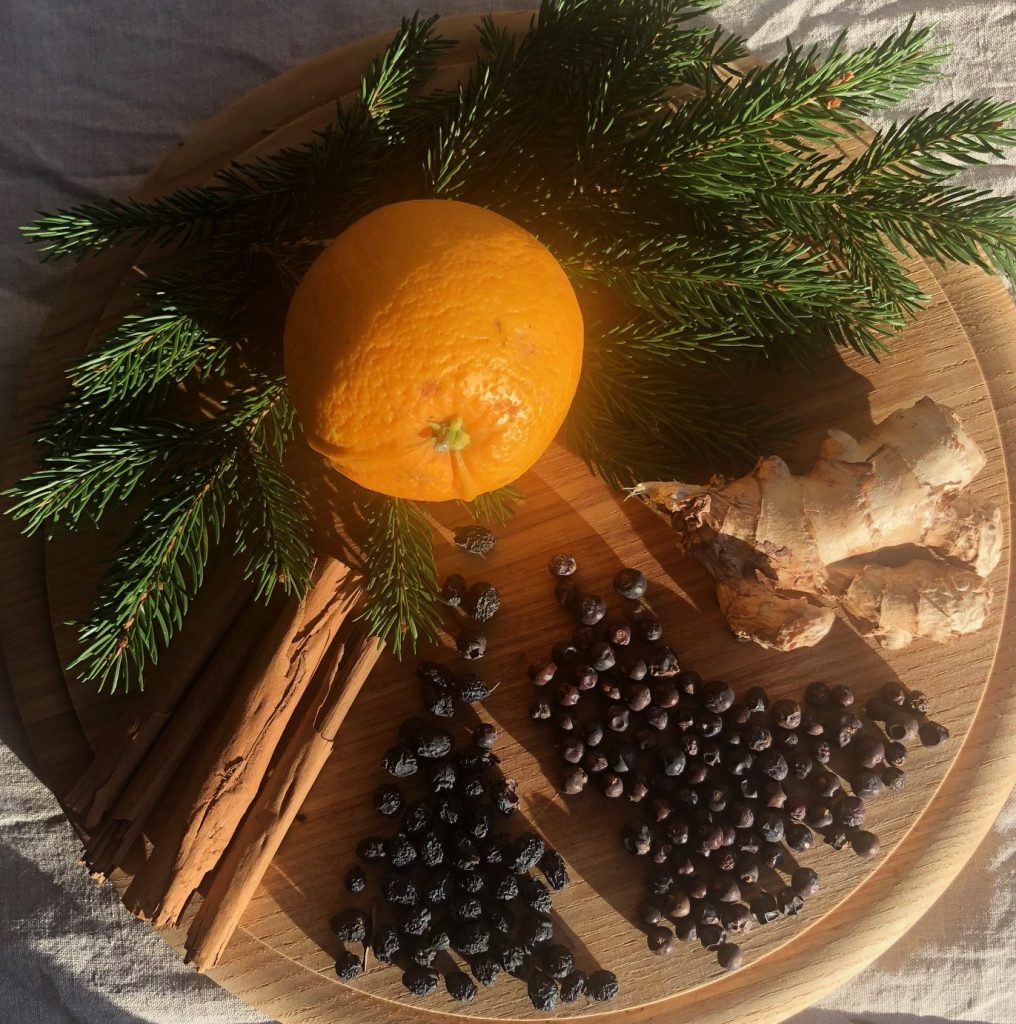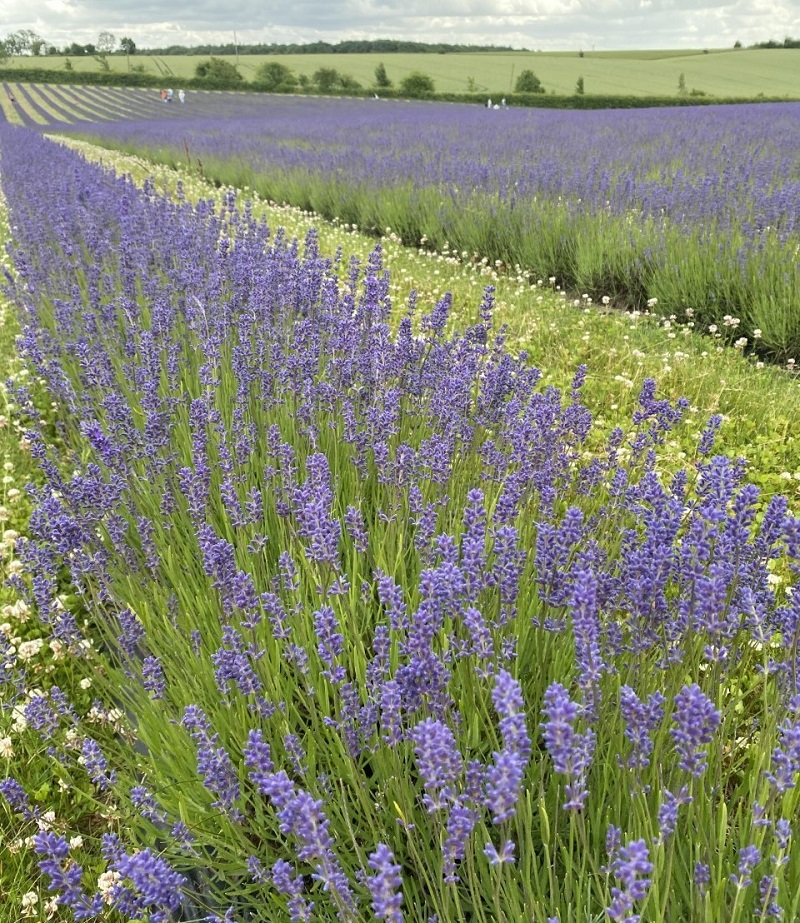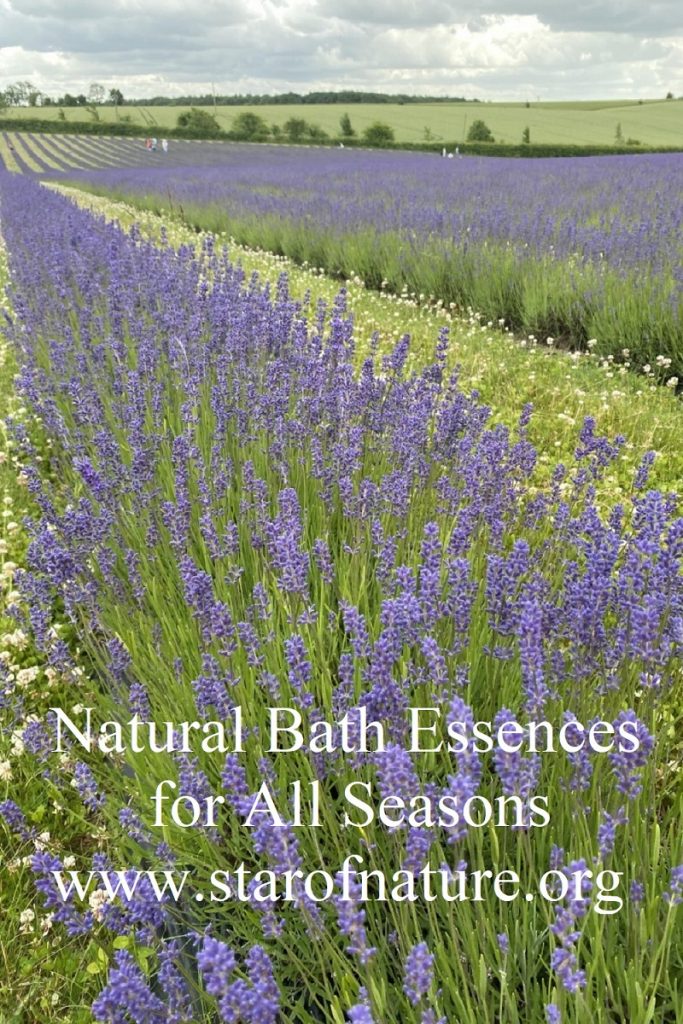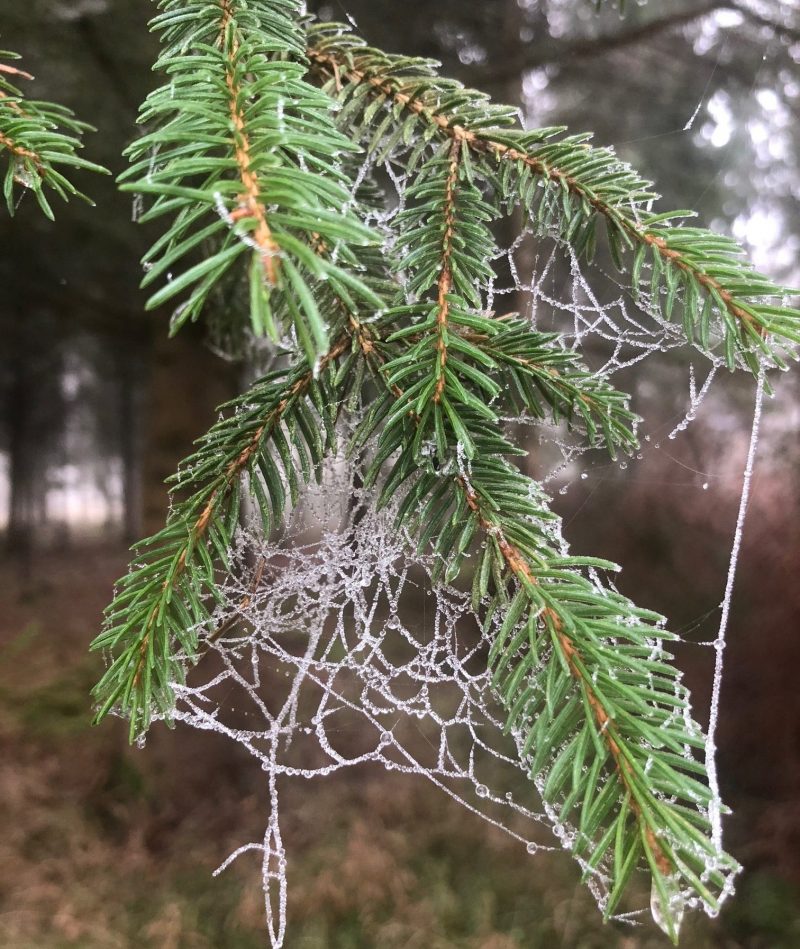Natural Bath Essences for All Seasons
A warm bath can be wonderfully relaxing and comforting any time of the year, and it is possible to make it even more enjoyable by adding natural herbal essences. Herbal bath essences can evoke the scent of summer in the depths of winter. And on the contrary, spicy aromas, appropriate for winter, can be delightfully relaxing and uplifting, and enhance the enjoyment of warmer seasons.
In this post I explain the benefits of having a bath, rather than a shower, and give recipes of herbal bath essences for winter and summer.
The benefits of taking a bath rather than a shower
Most people shower, rather than take a bath, because showers are quick and convenient. Yet scientific evidence from cultures where ‘emersion bathing’ is common, such as Japanese, suggests that baths are significantly better than showers for overcoming fatigue and stress. They help to relieve pain and improve mood and a sense of well-being.
To give just one example, a study by Yasuaki Goto, et al. ‘Physical and Mental Effects of Bathing: A Randomized Intervention Study’ (Evidence-Based Complement Alternative Medicine, 2018) reports that those who had a habit of bathing in hot water regularly, tended to sleep better and feel more rested. They also had lower levels of stress and a higher subjective sense of health and happiness. The authors conclude that ‘immersion bathing should improve both physical and emotional aspects of quality of life’.
Goto and colleagues, and other researchers emphasize several benefits of having a bath:
1. Improved circulation and metabolism
The heat from the water (‘hyperthermic action’) warms the blood in superficial vessels and increases the deep body temperature. This results in improved supply of oxygen and nutrients to the body and improves elimination of ‘metabolic waste materials’.
In other words, heat stimulates circulation, improves metabolism, eliminates waste and thus refreshes the body. Goto and colleagues report that several of their studies demonstrated that these benefits result from ‘immersion bathing’, but not from shower bathing.
2. Pain relief and improved flexibility
Heat from the water also systemically relaxes the muscles, softens collagen in ligaments and improves ‘musculoskeletal function’. This is responsible for pain-relief and improved flexibility effects of bathing.
3. Stress relief, refreshment, relaxation and benefits to the heart
Finally, baths are therapeutic not only due to temperature, but also due to physical properties of water. Water reduces the action of gravity on the body – the body becomes ‘lighter’ when submerged in water.
This creates special, beneficial conditions for circulation and the work of the heart. As scientists explain, the reduction of the force of gravity may lead to the relief of tension, anxiety, depression and anger. It therefore brings the benefits of stress relief, refreshment, and relaxation.
Water temperature and duration when taking a bath
So how does one take a bath? The medical advice for a healthy person is that the water temperature should be 38-40C, and the duration of the bath 10-20 minutes. The older is the person, the cooler should be the temperature and the shorter the bathing time.

Natural bath essences: recipes
Therapeutic and mood-enhancing effects of taking a bath can be increased by using natural bath essences. Here are some recipes using simple ingredients that can be collected from the garden or are widely available from health food shops and online suppliers.
Pine bath
After a windy day there are often broken pine and firtree branches in woods and parks. Cuttings of pine or fir may also remain after pruning in the garden. Such branches should not be wasted.
Cut them into segments that would fit into a medium-sized pan. Ideally they should be 10-15cm long and come from the ends of branches, being the current year’s growth.
Fill 1/3 of a pan with cuttings. Add water to fill the rest and bring to boil. Cover and simmer gently for an hour. Leave to cool and infuse until the next morning. Strain and add to a bath.
Pine baths promote calm, reduce irritability, stabilize blood pressure, and promote good sleep.

Winter spice bath
Put a cup of juniper berries, a handful of eucalyptus leaves (perhaps bought from a florist or left from a flower arrangement), and the peal of one orange in a pan. Add two liters of water. Bring to boil, cover and simmer for 15 minutes. Cool for two hours. Strain and add to a bath.
All the ingredients in this essence are traditional remedies for colds.
Ginger bath
Grate 100g of fresh ginger root and put in a pan. Add 1 litre of water. Bring to boil, cover and simmer for 15 minutes. Cool, strain and add to a bath.
Ginger is a wonderful spice for a cold time of the year. It warm, improves immunity, energizes circulation and helps to fight colds.
Herbal bath essences
Herbal bath essences can be made with fresh or dry ingredients. If using dry herbs, you will need 50g, if using fresh herbs – 300g.
To make the essences, put herbs in a pan and add 1 litre of water. Bring to boil, cover and simmer for 15 minutes. Cool and infuse for 2 hours. Strain and add to a bath.
Nettle bath
Use young nettles and wear gloves when collecting and washing them. Nettle improves circulation and is very beneficial for the skin. It heals, reduces irritation and helps to fight allergy. Nettle is one of the most important ingredients in natural cosmetics.
Lavender bath
Lavender flowers, lemon balm leaves, and lime flowers can be used individually or in equal parts in a mixture. Lavender bath essence promotes relaxation and deep sleep.

Sage and chamomile bath
Sage and chamomile can be used individually or in a mixture in equal parts. Both reduce inflammation and soften the skin. Chamomile is another important ingredient in natural cosmetics.
Rosemary bath
Rosemary is a tonic. It improves circulation, lifts the mood and increased energy.
A bath for dry, itchy or irritated skin
Dissolve 200g of baking soda in a bath at a temperature of 37-38C. Add a few drops of your favourite essential oil. Stay in a bath for 15 minutes.
Baking soda bath is excellent for dry, itchy or irritated skin.
Posts related to ‘Natural Bath Essences for All Seasons’
Herbal Bath Tea Recipes for Relaxation, Energy and Beauty
Natural Shampoo Alternatives: Now and in the Past
Natural Anti-Aging Cosmetics: 19th-century Recipes
Best Home-made Herbal Toners for Dry Skin
Nettle and Yarrow in Cosmetic Recipes
Pin ‘Natural Bath Essences for All Seasons’ for later

